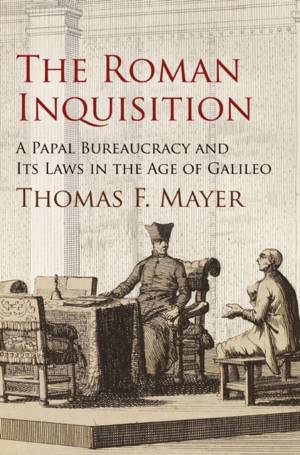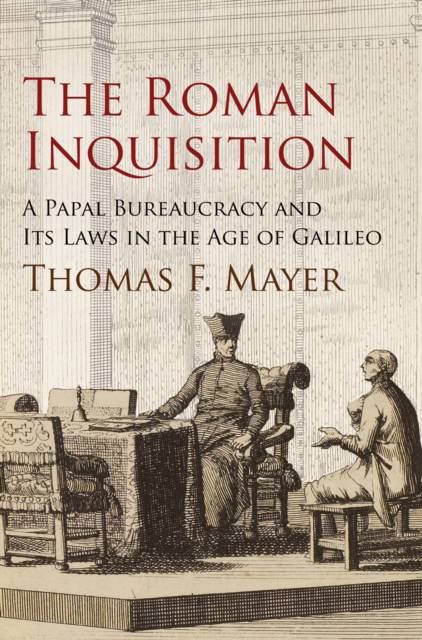
- Retrait gratuit dans votre magasin Club
- 7.000.000 titres dans notre catalogue
- Payer en toute sécurité
- Toujours un magasin près de chez vous
- Retrait gratuit dans votre magasin Club
- 7.000.0000 titres dans notre catalogue
- Payer en toute sécurité
- Toujours un magasin près de chez vous
122,45 €
+ 244 points
Description
The Roman Inquisition A Papal Bureaucracy and Its Laws in the Age of Galileo Thomas F. Mayer "An extremely important project. Mayer brings an unprecedented amount of archival research to the table, and his findings will be epoch-making and definitive."--Henry Ansgar Kelly, University of California, Los Angeles "A profoundly researched analysis of how the Sacred Congregation of the Roman Inquisition actually operated at the center, its procedures, developed 'style, ' and jurisprudence as revealed by congregational registers, inquisitors' manuals, and apt sample cases. We learn of the personnel involved, from cardinal inquisitors to consultants and notaries. Mayer is especially revealing about some involved in judging Galileo's books and behavior."--Christopher Black, University of Glasgow While the Spanish Inquisition has laid the greatest claim to both scholarly attention and the popular imagination, the Roman Inquisition, established in 1542 and a key instrument of papal authority, was more powerful, important, and long-lived. Founded by Paul III and originally aimed to eradicate Protestant heresy, it followed medieval antecedents but went beyond them by becoming a highly articulated centralized organ directly dependent on the pope. By the late sixteenth century the Roman Inquisition had developed its own distinctive procedures, legal process, and personnel, the congregation of cardinals and a professional staff. Its legal process grew out of the technique of inquisitio formulated by Innocent III in the early thirteenth century, it became the most precocious papal bureaucracy on the road to the first "absolutist" state. As Thomas F. Mayer demonstrates, the Inquisition underwent constant modification as it expanded. The new institution modeled its case management and other procedures on those of another medieval ancestor, the Roman supreme court, the Rota. With unparalleled attention to archival sources and detail, Mayer portrays a highly articulated corporate bureaucracy with the pope at its head. He profiles the cardinal inquisitors, including those who would play a major role in Galileo's trials, and details their social and geographical origins, their education, economic status, earlier careers in the Church, and networks of patronage. At the point this study ends, circa 1640, Pope Urban VIII had made the Roman Inquisition his personal instrument and dominated it to a degree none of his predecessors had approached. Thomas F. Mayer is Professor of History at Augustana College. He is author of Reginald Pole: Prince and Prophet, and editor and translator of The Trial of Galileo, 1612-1633. Haney Foundation Series Jan 2013 392 pages 6 x 9 ISBN 978-0-8122-4473-1 Cloth $79.95s £52.00 ISBN 978-0-8122-0764-4 Ebook $79.95s £52.00 World Rights History, Religion Short copy: As Thomas F. Mayer demonstrates in this first study of the Roman Inquisition as institution, the Inquisition underwent constant modification as it expanded. Originally aimed to eradicate Protestant heresy, it went beyond medieval antecedents by becoming a highly articulated centralized organ directly dependent on the pope.
Spécifications
Parties prenantes
- Auteur(s) :
- Editeur:
Contenu
- Nombre de pages :
- 392
- Langue:
- Anglais
- Collection :
Caractéristiques
- EAN:
- 9780812244731
- Date de parution :
- 19-02-13
- Format:
- Livre relié
- Format numérique:
- Genaaid
- Dimensions :
- 150 mm x 231 mm
- Poids :
- 703 g

Les avis
Nous publions uniquement les avis qui respectent les conditions requises. Consultez nos conditions pour les avis.






